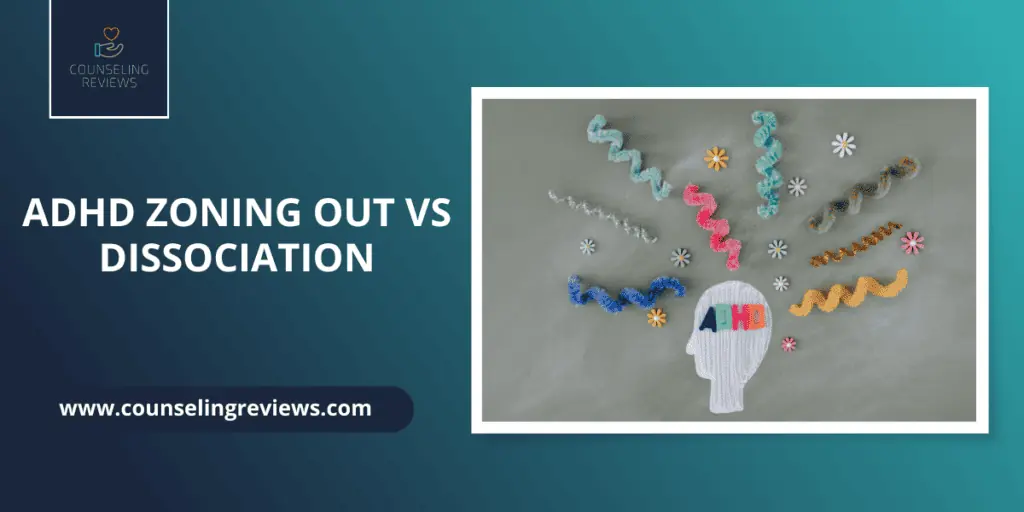Many people use the terms “zoning out”, “being spaced out”, and “feeling dissociated” or “depersonalized” interchangeably. However, they are all different and may indicate mild to severe psychological difficulties.
Let’s look at what zoning out is and how it differs from dissociation, especially in the context of attention-deficit/hyperactivity disorder (ADHD).
Zoning Out vs. Dissociation – Key Differences
| Characteristic | Zoning Out | Dissociation |
|---|---|---|
| Awareness of surroundings | Typically aware | May feel detached from surroundings |
| Return to focus | Relatively easy | May be difficult or impossible |
| Causes | ADHD, boredom, daydreaming, etc. | Trauma, stress, mental health conditions |
| Symptoms | Loss of focus, daydreaming, mind wandering | Altered sense of self, time, space, memory, concentration, emotions |

